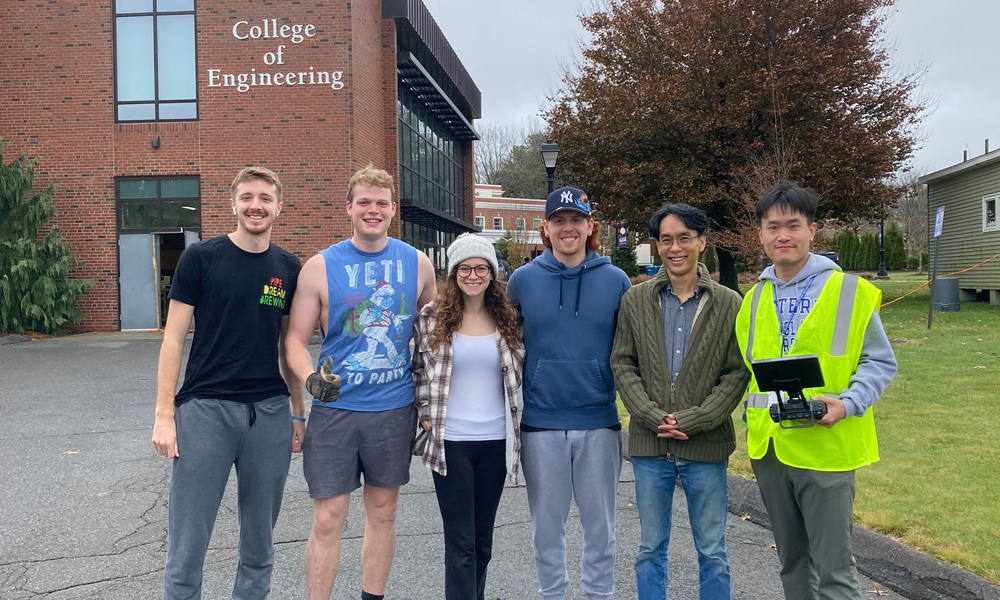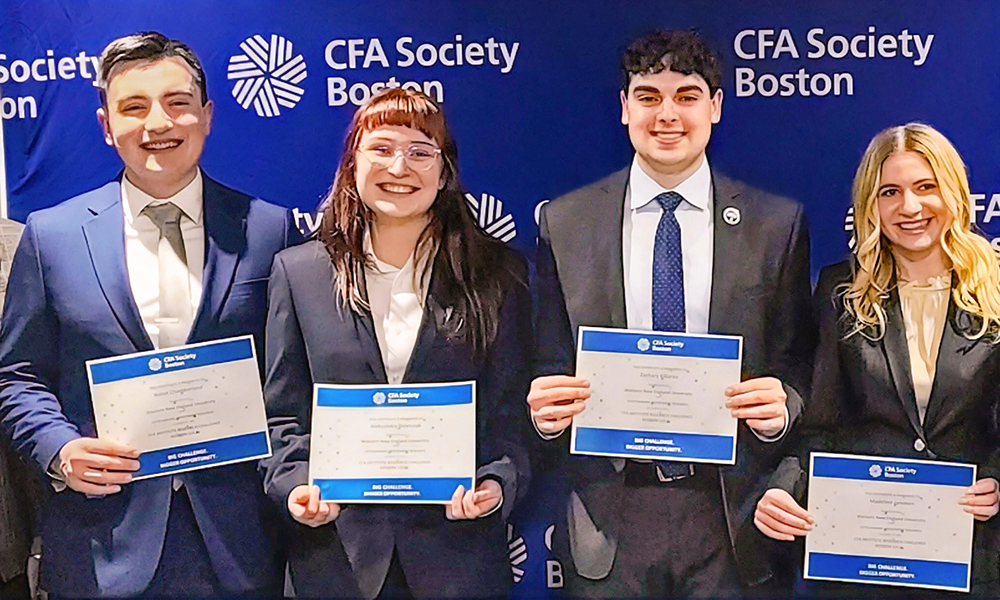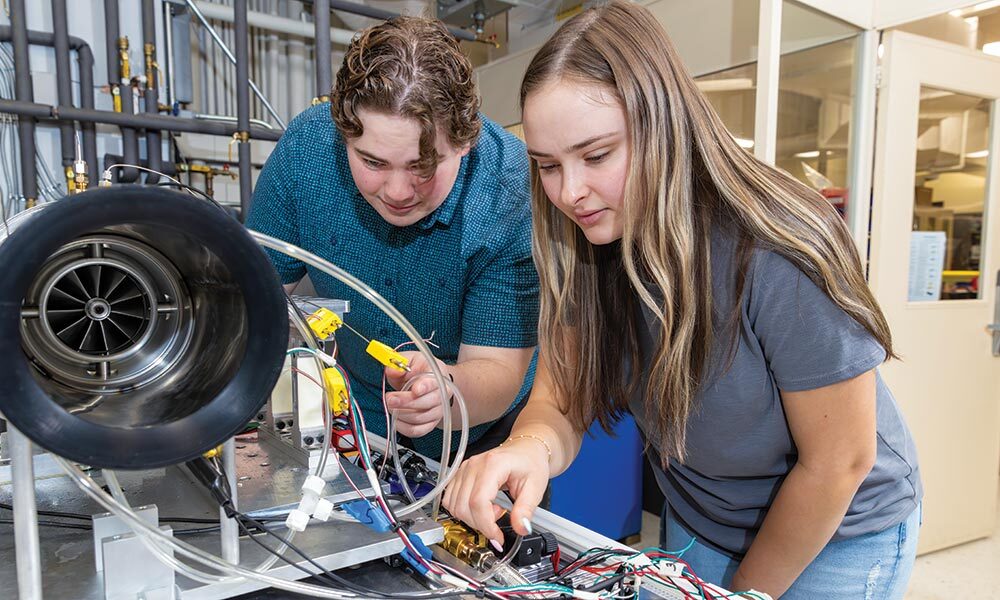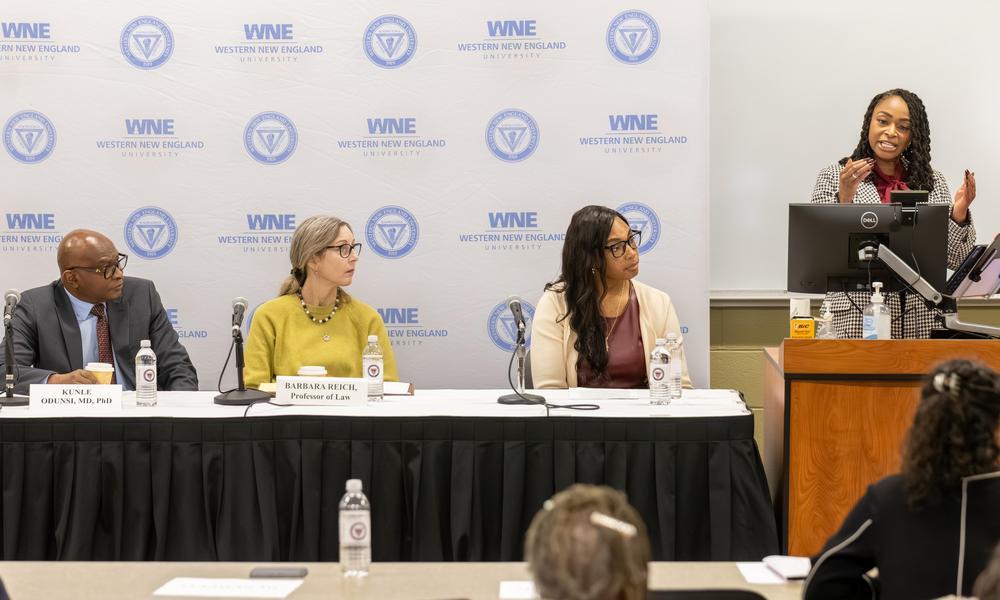On-the-ground impact meets cutting-edge technology in a new partnership between Western New England University (WNE) and Greater Springfield Habitat for Humanity (GSHFH). Thanks to a $149,700 grant from the Massachusetts Clean Energy Center’s EmPower Massachusetts program, the WNE College of Engineering will lead an initiative to help West Springfield families reduce home energy costs through drone-based heat assessments and AI-powered retrofitting plans.
Through the initiative, WNE faculty and students will work alongside GSHFH to conduct thermographic assessments that identify energy loss in the homes of qualifying low-income families. Drones equipped with thermal cameras will capture images of homes, and Artificial Intelligence (AI) algorithms will analyze the data to detect heat loss, simulate energy consumption, and develop automated retrofitting recommendations. The retrofits will then be implemented by GSHFH through its Home Preservation Program.
“This project helps residents understand their home conditions and reduce energy costs while giving WNE students hands-on experience applying classroom knowledge to real-world construction projects,” said Dr. Yu Hou, assistant professor of Construction Management and principal investigator for the project. “Students will use AI techniques—specifically computer vision methods—to identify areas of heat loss from building envelope images.”
Dr. Hou, who teaches courses such as Passive and Active Building Systems and Computer Applications in Construction Management, will integrate this project into his classes, allowing students to apply Building Information Modeling (BIM) and energy simulation tools to local homes as case studies.
“This work enables us to assess residential energy consumption and building efficiency while also exploring public trust in generative AI,” added Dr. Steven Li, professor in the Department of Industrial Engineering and Engineering Management and co-principal investigator.
GSHFH sees the collaboration as an opportunity to expand its mission while offering students a meaningful learning experience.
“We’re excited to partner with Western New England University on this important initiative,” said Aimee Giroux, executive director at GSHFH. “This grant will support our Home Preservation Program and help us provide lower-income homeowners with valuable information on improving energy efficiency. We’re especially thrilled to work alongside WNE students, whose participation brings fresh insight and energy to our shared mission of building stronger, more sustainable communities.”





